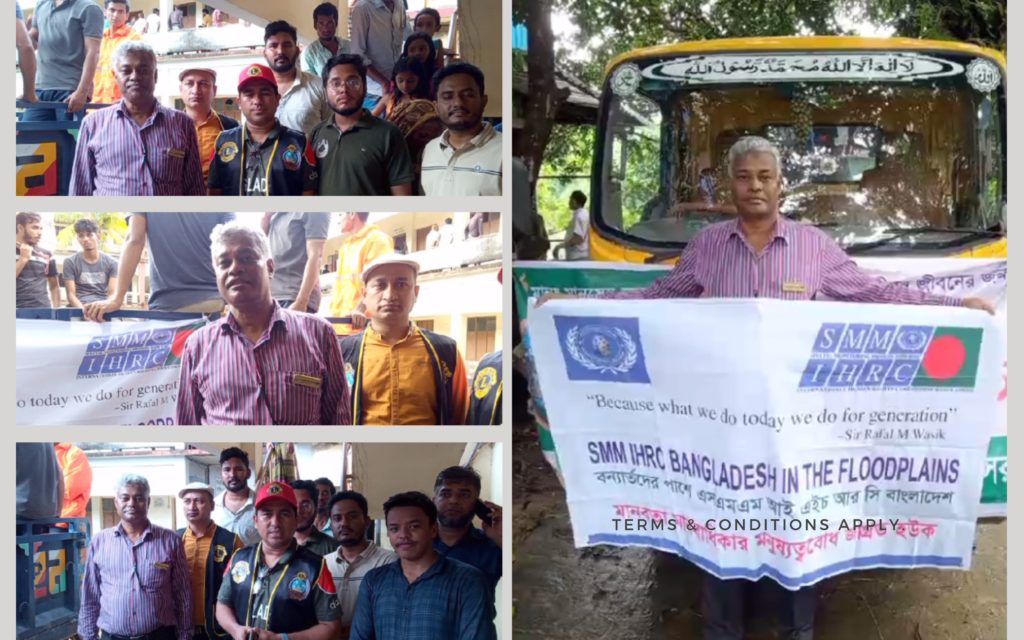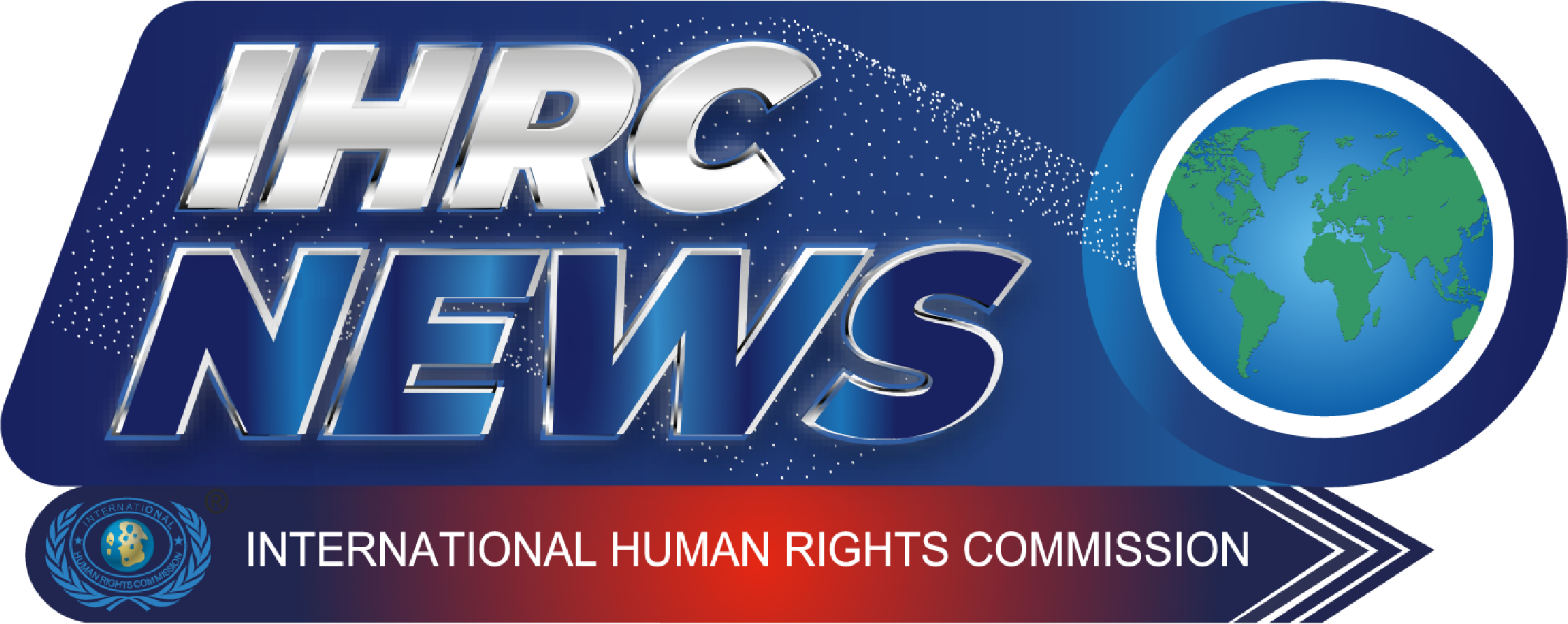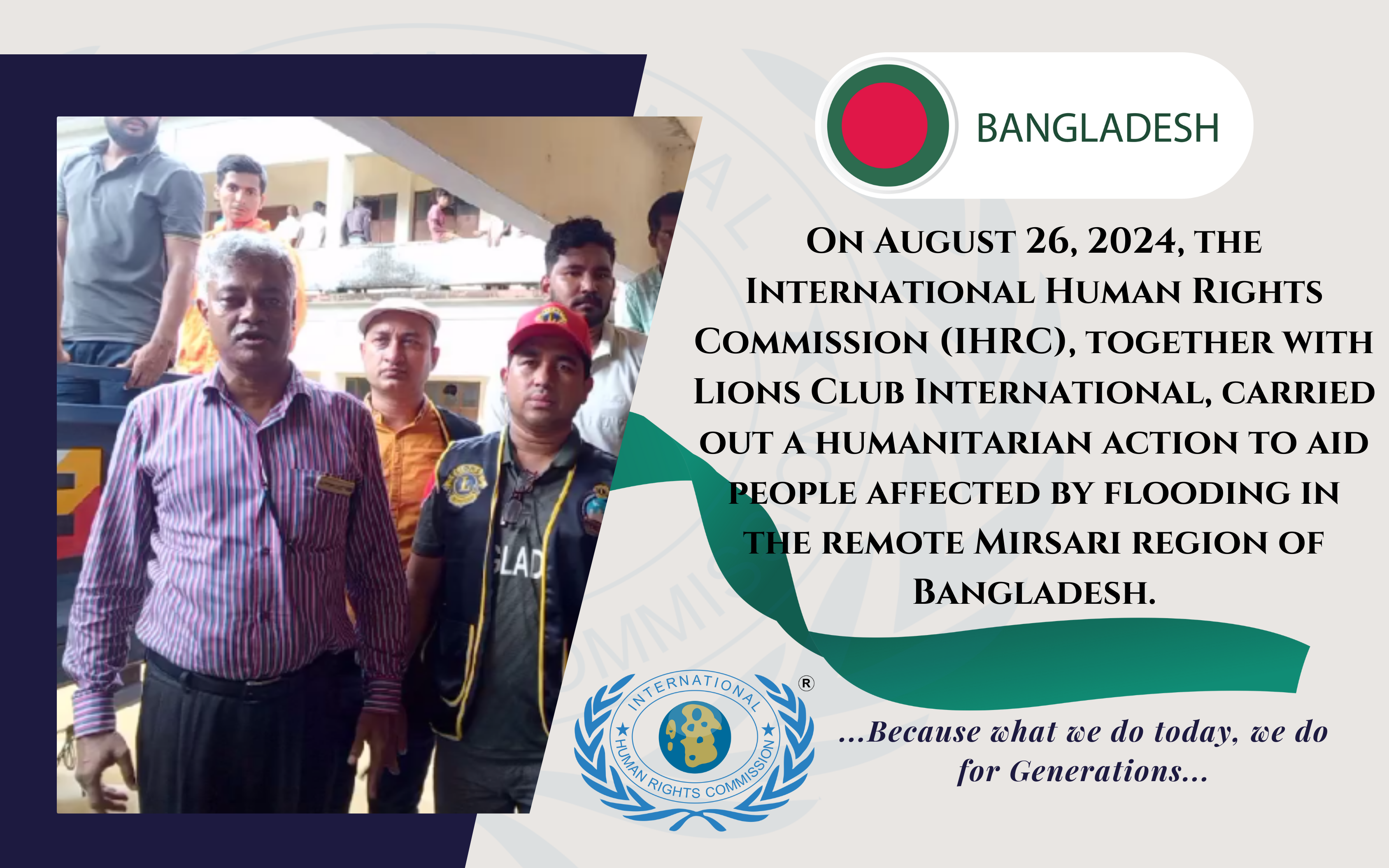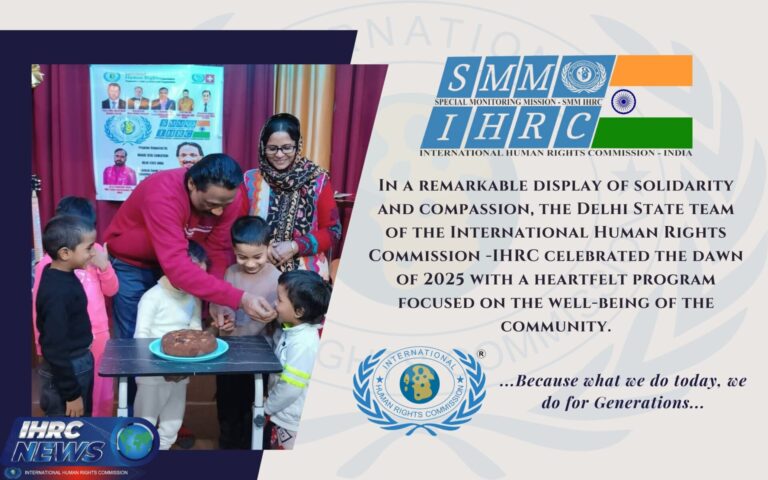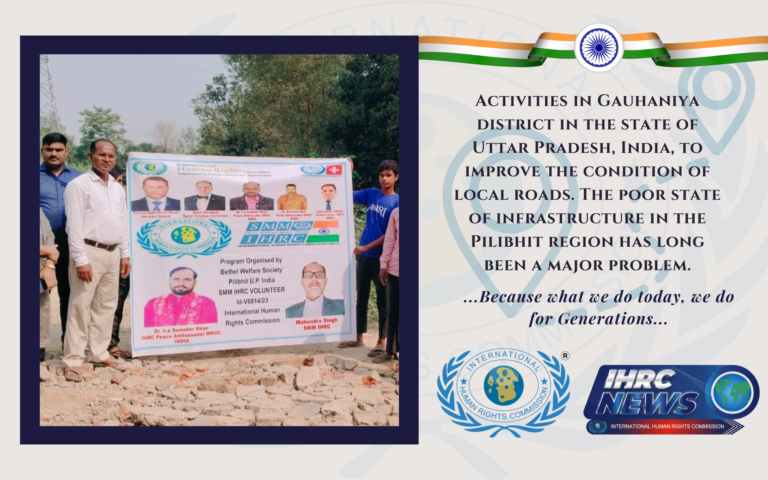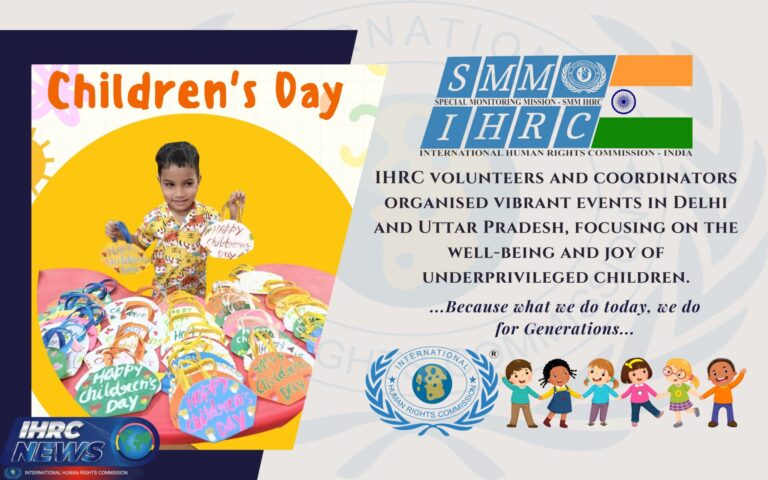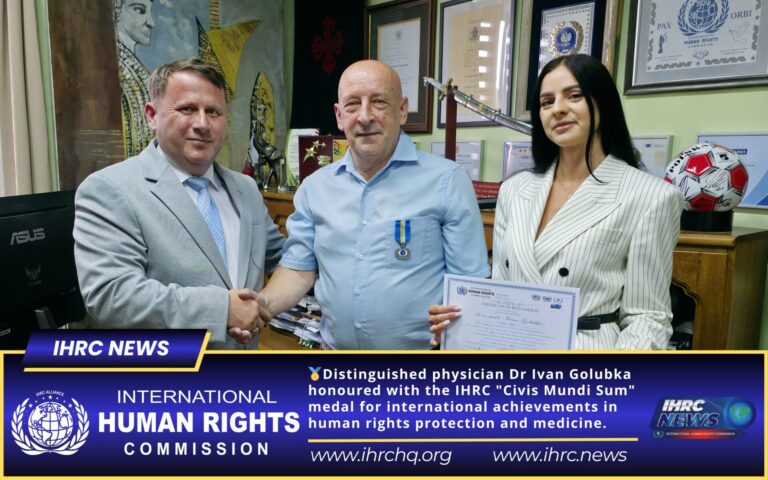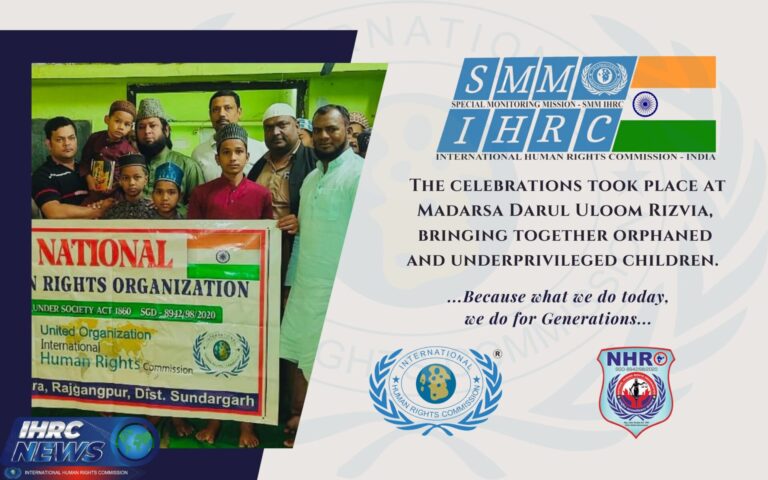On August 26, 2024, the International Human Rights Commission (IHRC), together with Lions Club International, carried out a humanitarian action to aid people affected by flooding in the remote Mirsari region of Bangladesh. The initiative, co-led by Peace Ambassador and National Coordinator of IHRC in Bangladesh, Mohammed Elias Serazi, aimed to support 1,200 residents of this region who found themselves in a difficult situation following the devastating catastrophe. As part of the effort, ready meals were distributed to those in need, providing a direct response to the severe consequences of the flood.
Floods in Bangladesh, caused by heavy rains and monsoons, affect millions of people annually, particularly in coastal areas like Mirsari. Water inundates homes, destroys infrastructure and farmland, and cuts residents off from basic resources such as food, clean water, and medical care. Humanitarian actions, such as those organised by IHRC and Lions Club International, play a critical role in crisis situations by providing immediate aid in the form of food, which is essential for survival in the first, most difficult days following a disaster.
Local volunteers, including AZM Saiful Islam Totol, Zillur Rahman, Dawued Abir, Alauddin Refat, and Aynul Chowfhury, actively participated in the support mission. Representatives from Lions Club International, including engineers Kamrul Alom and Rashedul Bari Sheblu, also played an important role in coordinating and implementing the aid program. Thanks to their commitment, they were able to effectively reach those most affected by the flood, even in hard-to-access areas.
The humanitarian assistance provided by the International Human Rights Commission is crucial for communities that lose access to basic resources due to natural disasters. The ready meals distributed to the residents of Mirsari were one of the most important forms of support, especially during the initial phase of the crisis, when the local community’s situation is at its most dire. Thanks to the involvement of IHRC and local partners, the effects of the disaster were alleviated, and direct assistance was provided in one of the hardest-hit areas.
The volunteers demonstrated tremendous dedication, reaching every individual in need. This operation was an excellent example of how joint efforts between international organisations and local leaders can significantly improve the living conditions of those affected by catastrophe.
The involvement of the International Human Rights Commission highlights the importance of global solidarity during times of crisis. Thanks to this, thousands of people who have lost everything receive real assistance, helping them survive the most difficult moments and giving them hope to rebuild their lives after the disaster.
Dawid Szablowski
Head of IHRC Press Department
